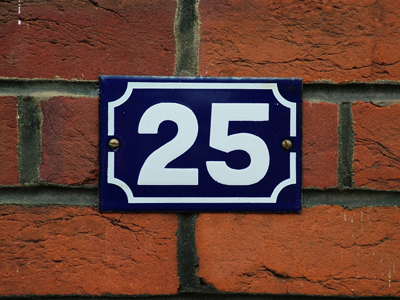
The square number immediately after 16 is 25.
Level 3-4 Algebra - Square Numbers
In your KS3 Maths adventures, you've probably bumped into powers – those small numbers hanging out above and to the right of another number. We even did a quiz on it! Powers are like secret codes, telling you to multiply a number by itself as many times as the power says. The superstar power in algebra (and the one you'll come across most often) is the square.
Join the Quiz Adventure! Read About The Benefits
1 .
What is the next square number after 9?
12
14
16
18
3 x 3 is 9; 4 x 4 is 16
2 .
The roof of a rabbit hutch is completely tiled. There are 7 tiles across and 7 tiles down. How many tiles are there altogether?
14
28
42
49
Can you see why the number of tiles might be referred to as 72?
3 .
Is the number 13,692 a square number?
Yes
No
Only in algebra
Always, except in algebra
A square number (also called a perfect square) is a positive whole number that is formed by multiplying a whole number with itself. For example, 16 = 4 x 4; 1 = 1 x 1; 1,681 = 41 x 41, and so on
4 .
A patch of garden is 10 metres x 10 metres. What is its area expressed in square metres?
210
102
2 x 10
10 x 2
5 .
What is 02?
0
2
4
8
No matter how many times you multiply 0 x 0 it will still be 0!
6 .
What is the square number that comes immediately before 36?
10
15
20
25
6 x 6 is 36; 5 x 5 is 25
7 .
What number is 32?
3
6
9
12
Multiply 3 by itself (3) and you get 9
8 .
How would you refer to 32?
Large 3, little 2
3, superscript 2
3 multiplied by 2
3 squared
You might say '3 to the power of 2' but it is more usual to say '3 squared'
9 .
What is the missing square number in the sequence 1, 4, 9, 16, 25, 36, 49, ......., 81?
56
60
64
68
64 is 8 x 8; on one side it has 7 x 7 (49) and on the other side it has 9 x 9 (81)
10 .
What is 12?
0
1
2
3
1 x 1 = 1
**Unlimited Quizzes Await You! 🚀**
Hey there, quiz champ! 🌟 You've already tackled today's free questions.
Ready for more?
Ready for more?
🔓 Unlock UNLIMITED Quizzes and challenge yourself every day. But that's
not all...
not all...
🔥 As a Subscriber you can join our thrilling "Daily Streak" against other
quizzers. Try to win a coveted spot on our Hall of Fame Page.
quizzers. Try to win a coveted spot on our Hall of Fame Page.
Don't miss out! Join us now and keep the fun rolling. 🎉
**Unlimited Quizzes Await You! 🚀**
Hey there, quiz champ! 🌟 You've already tackled today's free questions. Ready for more?
🔓 Unlock UNLIMITED Quizzes and challenge yourself every day. But that's not all...
🔥 As a Subscriber you can join our thrilling "Daily Streak" against other quizzers. Try to win a coveted spot on our Hall of Fame Page.
Don't miss out! Join us now and keep the fun rolling. 🎉







